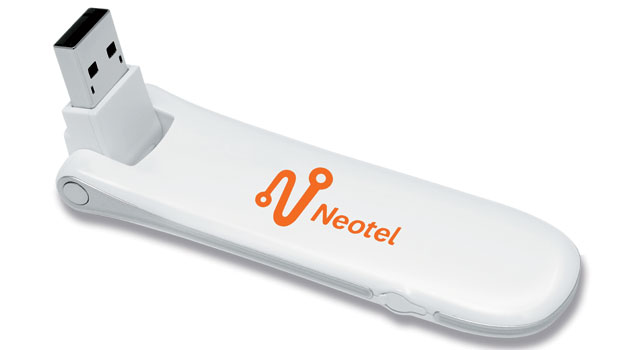 There is a certain irony in the fact that at the same time that our cellphone companies are announcing dramatic cuts to both their data and call rates in what appears to be a price war, we are also confronted by announcements on proposed tie-ups that, if concluded, will reduce competition in the sector.
There is a certain irony in the fact that at the same time that our cellphone companies are announcing dramatic cuts to both their data and call rates in what appears to be a price war, we are also confronted by announcements on proposed tie-ups that, if concluded, will reduce competition in the sector.
The irony is no coincidence. Cell C’s effort to win market share is an existential one. The appointment of Alan Knott-Craig and funding his aggressive expansion signalled the introduction of real competition in our market.
There seems to be consensus that to be sustainable in this market in the long term, cellphone networks need to capture at least 20% market share and Cell C, licensed well after Vodacom and MTN, is attempting to do just that. Without Knott-Craig, Cell C could easily have continued its slumber, leaving Vodacom and MTN’s margins untouched. The beneficiaries of all this, for once, are the subscribers.
The market dynamics for large capital-intensive businesses like mobile telecommunications are slower than for other product markets, but microeconomics (that part of the discipline that has withstood the test of time) predicts that the outcome for consumers is much better when there are three providers than when there is a duopoly. Every customer of whichever network is now reaping the benefits of Cell C’s decision to try to be a real contender.
Now, one could be sympathetic to the complaints of Vodacom’s CEO, Shameel Joosub, who says his company’s proposed acquisition of Neotel is actually about securing access to additional spectrum, and is about the industry “making a plan” in the absence of government action over licensing new spectrum. But as he says, any acquisition made will not in itself solve the spectrum problem. It needs to be addressed by the government and the regulator, and should be done as quickly as possible.
However, the inexplicable delays in allocating new spectrum for so-called 4G services have served our giant incumbents very well. This is because it has retarded the natural evolution of our telecoms market. Although many analysts point to the huge year-on-year growth in data usage in South Africa, this is off a relatively low base. Regular 2G voice calls still represent over 70% of our mobile network operators’ total revenues.
But the next point is important: 2G voice calls are vastly more profitable for the operators than data. So, 2G services, on a standalone basis, contribute a larger share of profit than their contribution to total revenues. This has put mobile operators around the globe in a quandary. Their old 2G business model was vastly more profitable, but unless they provide fast and reliable data connectivity, which itself cannibalises the 2G business model, they stand to lose subscribers. The consequence is reduced levels of profitability in inverse proportion to the net contribution of data services to total revenues.
This trend is apparent throughout the world. In general terms, Vodacom in South Africa is more profitable than its Vodafone peers in other countries. It can’t be ascribed to superior management. It is also why the question of mobile termination rates, something not applicable to data, is so important to our incumbents.
Reduced profitability in the near future for our two largest networks is therefore “baked in”. Under these circumstances, there are always efforts to consolidate the market to reduce competition or, if the telecoms operators are to be believed, scale up and extract greater efficiencies. The same things have already played out in more developed markets than ours, but South Africa’s government and regulators should resist these efforts, more particularly since the introduction of Cell C is now paying off so well.
In the US, the Federal Communications Commission and the department of justice blocked AT&T’s proposed US$39bn acquisition of T-Mobile in 2011. At the time, T-Mobile was the struggling fourth-placed mobile network operator. Following this decision, T-Mobile employed the flamboyant and hard-nosed John Legere to be its CEO. Legere shares many of Knott-Craig’s instincts and characteristics. T-Mobile then introduced a range of measures that revolutionised the cellphone business in the US. These included dropping the two-year contract, early termination fees, charges on overage data and roaming charges. He unbundled the price of a phone from the price of wireless service, which means that when you finish paying off your phone, your monthly bill goes down.
After the deal was blocked, AT&T had to pay T-Mobile a breakup fee of $3bn and an additional $1bn in rights for wireless spectrum. The money and spectrum allowed T-Mobile to build out its network infrastructure, making it more attractive to new users. It was able to sign up 4m new customers in 2013. T-Mobile’s contract plans were so attractive that its competitors were forced to respond with similar pricing and contract options.

As can be expected, T-Mobile is making losses and even as it gains subscribers it has not been able to become profitable. Some say this is unsustainable, but this is what capitalism is about – there should be no guarantees. Subscribers have been the principal beneficiaries.
Our network operators have long been shielded from real competition. This is not just limited to the telecoms sector. A number of studies, including a recent World Bank study on South Africa’s economy, make the finding that large companies in South Africa are more profitable than their peers elsewhere and ascribe this to excessive concentration. The policy prescription is increased competition in our product markets that will also drive up our low productivity. We need more competition, not less.
Our mobile network operators are right to point to the huge failings of our government and communications regulator to manage and license spectrum effectively and efficiently. Their negligence in this regard has not only held us back from getting next-generation mobile broadband services, but has shored up the continued profitability of our incumbent mobile network operators at the cost of subscribers. It would be a double irony if these failings provided the justification for a slew of consolidation moves just when the invisible hand of the market was starting to work its magic.
- Dirk de Vos runs corporate finance and advisory firm QED Solutions. Find him on Twitter




